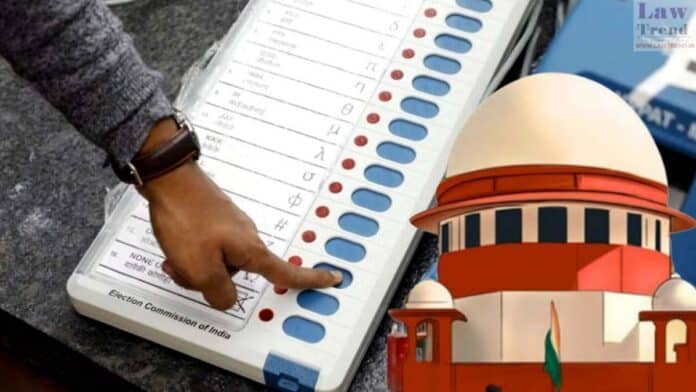The Supreme Court of India on Friday directed that a plea seeking a formal verification process for Electronic Voting Machines (EVMs) be heard by the same bench that had previously ruled on EVM security in April. During the hearing, Justices Vikram Nath and P.B. Varale emphasized the need for consistency in judicial review, pointing out that the matter closely relates to the earlier decision which upheld the security measures in place for EVMs.
Senior advocate Gopal Sankaranarayanan, representing the petitioners, reminded the court of its April judgment, which had dismissed concerns over the manipulation of EVMs as “unfounded,” affirming their role in curbing electoral malpractices like booth capturing and bogus voting. The April verdict also introduced a provision allowing unsuccessful candidates, who finished second or third in their constituencies, to request verification of microcontroller chips in five percent of EVMs per assembly constituency, subject to a fee.
The current petition, filed by former Haryana minister Karan Singh Dalal and five-time MLA Lakhan Kumar Singla, challenges the Election Commission’s (EC) implementation of this April ruling. The petitioners, both of whom secured the second-highest votes in their constituencies, argue that the EC has not established a clear protocol for verifying the “burnt memory” of EVMs, which includes components like the control unit, ballot unit, Voter Verified Paper Audit Trail (VVPAT), and symbol loading unit.
The petitioners assert that the EC’s current standard operating procedures, which involve basic diagnostic tests and mock polls, do not adequately address potential tampering with the burnt memory. They seek a more thorough verification mechanism to ensure the integrity of the election process. Although the petition does not challenge the election results directly, it raises concerns about the transparency and reliability of the current EVM verification processes.




